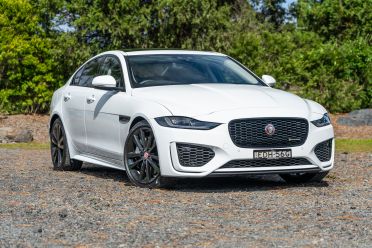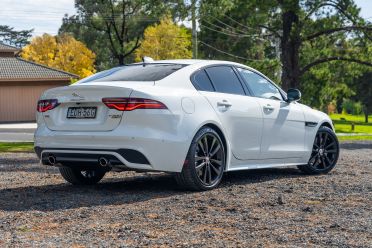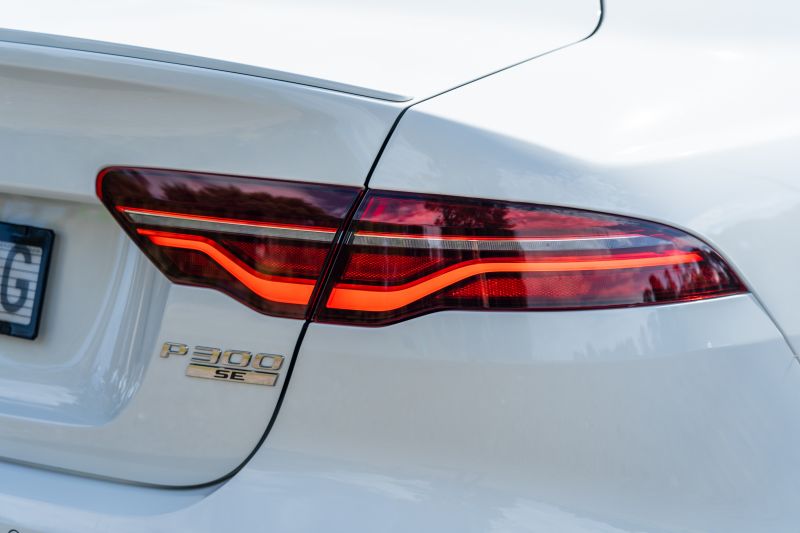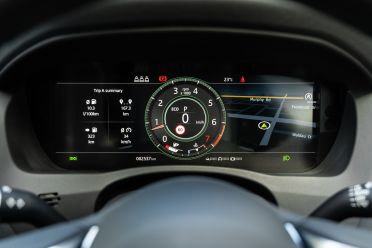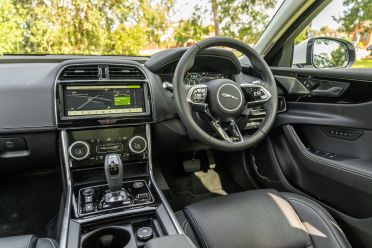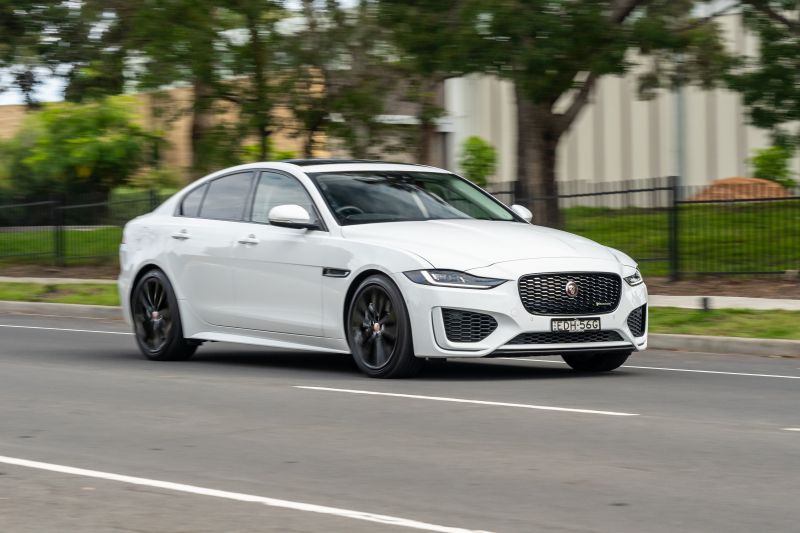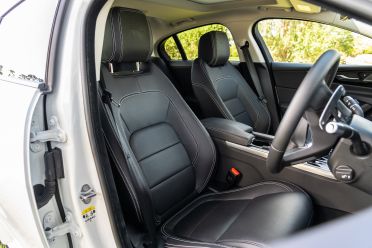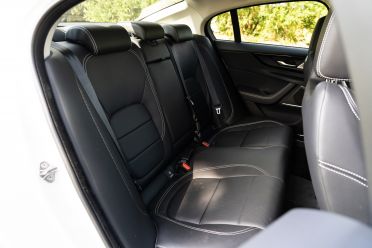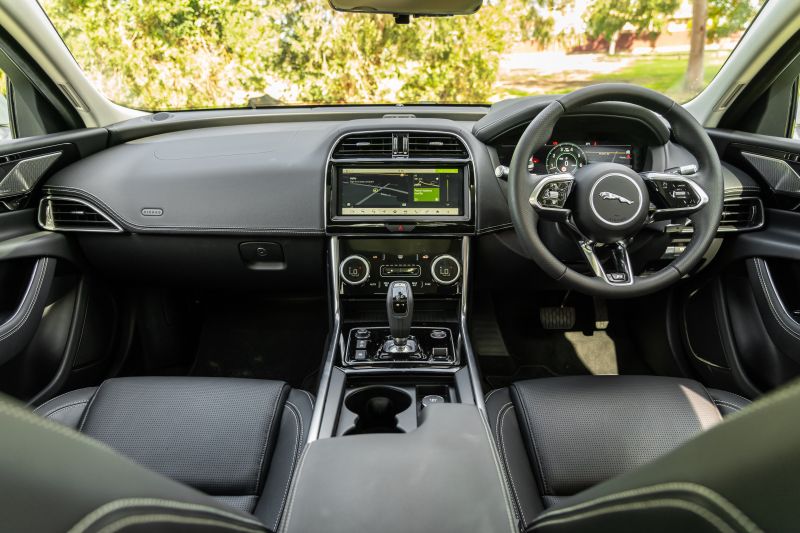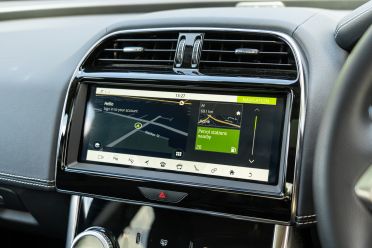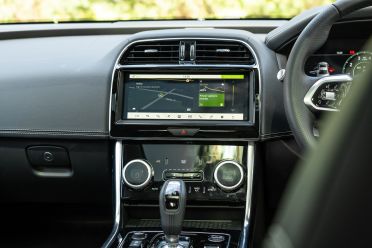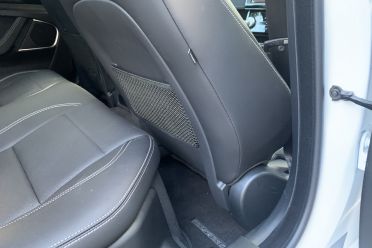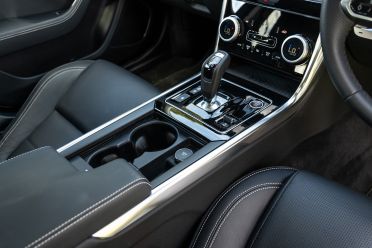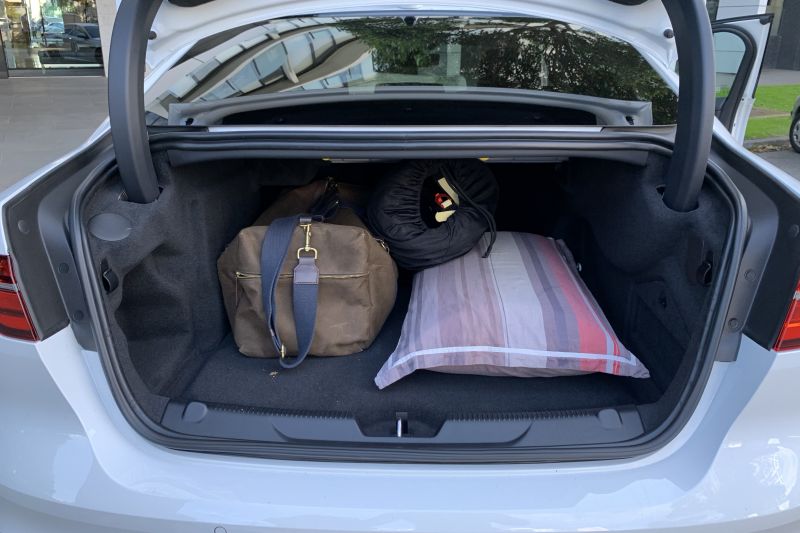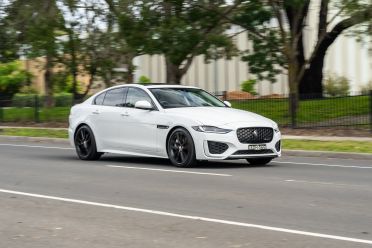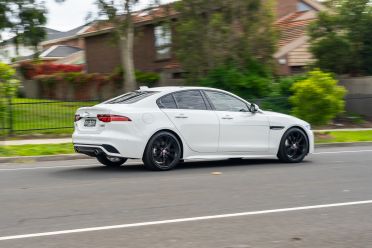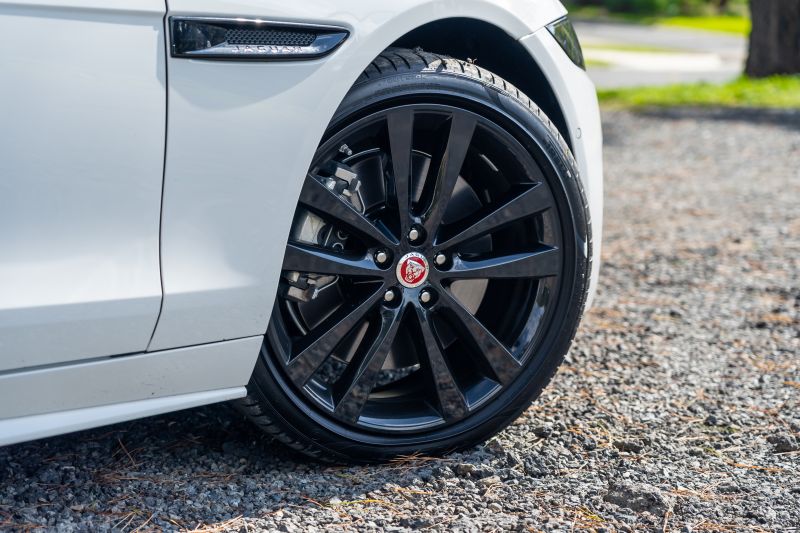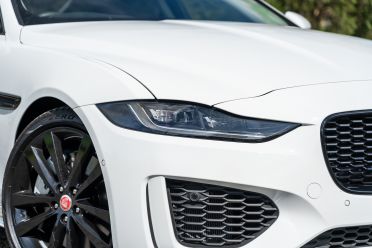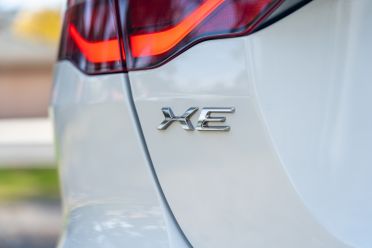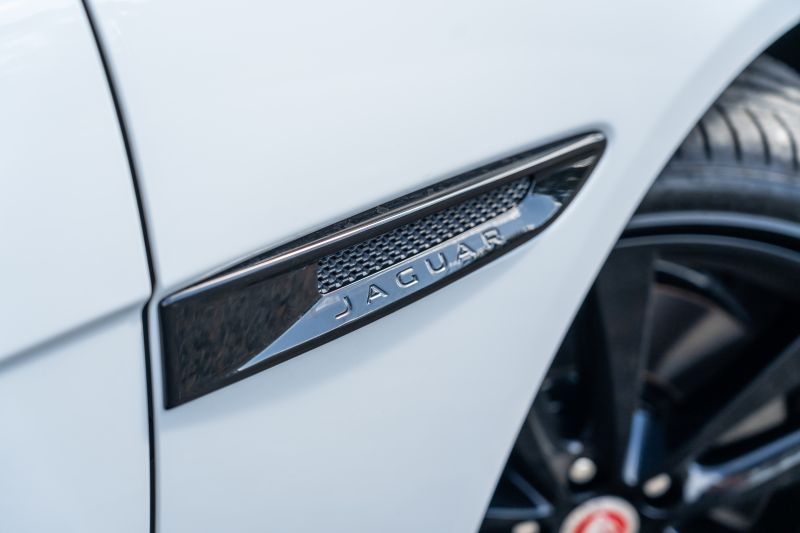The Jaguar XE was meant to save Jaguar.
The BMW 3 Series rival launched with huge expectations on its shoulders, but has never really hit the sales heights its British (or should that be Indian?) creators hoped.
That’s despite a chassis with real talent, and the draw of the rakish Jaguar badge.
Blame the move away from traditional sedans, blame the fact the Mercedes-Benz C-Class and BMW 3 Series have taken huge steps forward.
Or maybe the slightly underdone cabin and ageing engine range held it back.
Whatever the reason, Jaguar treated the XE sedan to a major overhaul in 2019. With more technology inside, a new range of engines, and a more distinctive design, it’s arguably the car Jaguar should have built from day one.
Local buyers now have a smaller, more sensible range to choose from as well – although there’s no shortage of options, this being a Jaguar Land Rover product.
Does this medium-sized cat finally have the practical bite to match its handling bark?

How much does the 2020 Jaguar XE R-Dynamic SE cost?
Pricing for the SE R-Dynamic, now the entry-level model in the range, kicks off at $65,670 before on-road costs.
The range-topping HSE will set you back $71,940 before on-roads – but our ‘base’ tester was optioned to $75,375 before on-roads.
Sounds like a lot, but the result is a well-equipped luxury sedan that’s more than capable of going head-to-head with the similarly-priced BMW 330i.
What do you get?
One of the nicest steering wheels this side of a motorsports Porsche. Jaguar has changed plenty in the Jaguar XE, but the biggest improvement is the wheel.
It’s lovely to hold and behold, with artful cutouts revealing a peek at the delightfully spindly aluminium paddle shifters hiding behind it. Well done Jaguar.
Leather-trimmed sports seats, dual-zone climate control, a faux-leather trimmed dash, LED head- and tail lights, auto-dimming and power-folding exterior mirrors, and an auto-dimming interior mirror are all standard, along with keyless entry and start.
Infotainment comes courtesy of a 10.0-inch touchscreen with Apple CarPlay, Android Auto, and DAB digital radio. The driver is faced with a digital instrument binnacle.
Autonomous emergency braking, a reversing camera, lane-keeping assist, parking assist, a surround-view camera, rear cross-traffic alert, and traffic sign recognition are included as well.
Options on our tester included a sliding panoramic sunroof ($1900), the Drive Pack ($1340) with blind-spot monitoring, adaptive cruise, and high-speed autonomous emergency braking, 19-inch black alloy wheels.
The Jaguar XE also had an 11-speaker audio system ($1200), 14-way heated front seats ($1120), the Black Exterior Pack ($840), privacy glass ($650), 40/20/40 folding rear seats ($460), a ClearSight interior mirror ($405), a boot lid spoiler ($310), and wireless phone charging ($180).
Is the 2020 Jaguar XE safe?
The Jaguar XE has a five-star ANCAP rating, based on testing carried out in 2015.
It scored 92 per cent for adult occupant protection, 82 per cent for child occupant protection, 81 per cent for pedestrian protection, and 82 per cent for safety assist.
Although low-speed autonomous emergency braking is standard, the fact blind-spot monitoring and high-speed AEB are optional is disappointing.
What’s it like inside?
One of the biggest criticisms of the Jaguar XE was its interior. The facelift improves things drastically.
The driver and passenger sit in lovely sports seats, which walk the line between sporty and comfortable perfectly. The fact they’re heated is a bonus, especially coming into winter.
Jaguar has done a great job with the driving position, which is accommodating for people great and small. And the steering wheel, as we said earlier, is an absolute delight.
Those paddles are actually made of metal, and have a lovely action to boot. They’re just nice to use.
Sure, the touch buttons are a bit fiddly and the scroll wheels lack the tactility of an Audi, but just look at it.
With a 10-inch display, the touchscreen infotainment system has the screen real estate to take on the best from Germany, but its software lags behind. The graphics on the tile-based home screen look toy-like compared to the sophisticated, clean designs of MBUX and BMW OS7.0, and the reversing camera is frustratingly grainy.
At least it has Apple CarPlay, which works in widescreen. We leaned on it at every opportunity – both for Google Maps, and for the fact it’s much easier to use than the inbuilt software.
There is something to be said for the simplicity of Jaguar’s dials. They aren’t nearly as flashy as what’s on offer in Germany’s best, but they don’t sacrifice function at the altar of style like BMW OS7.0 and its backhanded rev counter.
Gone is the fussy rotary gear selector, replaced with a simpler pistol-grip unit, while the air-conditioning system is now controlled by an adapted version of the touch-based system from the I-Pace.
It’s far cleaner, and far easier to use than before – but you need to pay more for the flashier dual-screen system debuted in the Jaguar I-Pace EV, which is a shame. It looks brilliant, and would help the XE stand out compared to its more established rivals. But we digress.
Where the update hasn’t helped is in the back. The Jaguar XE has a lovely compact stance and slick roofline, but rear passengers suffer as a result. Legroom behind taller drivers is non-existent – literally, not figuratively in my case – and the roof lining will ruffle the quiffs of even average-height prisoners.
Rear air vents are a welcome addition for anyone karting children around, as are the dual ISOFIX points. If your family is short, it won’t be an issue. But anyone approaching average height will want to think long and hard about how they use that back seat.
It’s a similar story with the boot which, at 410L, trails behind the BMW 3 Series (480L), Audi A4 (480L), and Mercedes-Benz C-Class (435L).
What’s under the bonnet?
Power in the XE comes from a four-cylinder turbocharged petrol engine making 221kW of power and 400Nm of torque. It’s dubbed P300, because 221kW is 300hp – naturally.
Power is put to the rear wheels through an eight-speed ZF automatic transmission.
Official fuel consumption is 6.7L/100km on the combined cycle, but we saw around 10L/100km in a week skewed towards city driving.
How does the Jaguar XE drive?
The XE has always had an ace up its sleeve. Jaguar spared no expense developing its chassis, from its aluminium-intensive architecture to the complex rear suspension.
Nothing has changed in the facelift. The Jaguar XE is still an absolute honey.
Motoring writers love to wax lyrical about balanced rear-wheel drive sports sedans, the sort BMW used to make. A comparison with the Alfa Romeo Giulia is required to confirm, but it wouldn’t be a stretch to say the XE is the driver’s choice in the mid-sized sedan world.
That’s not to say it’s a sports sedan first, commuter second. The ride is well-judged in town, isolating the driver from both big and small imperfections. Body control is tight, so it doesn’t wobble around over speed bumps, and roll is well contained.
Give it a healthy dose of throttle coming out of a roundabout or tight corner and the rear will come gracefully into play, while the well-weighted steering makes correcting these little slides effortless. Or so we’ve heard.
That keen chassis is backed by the P300 four-cylinder engine. I was disappointed to hear Jaguar had killed the supercharged six in the XE. It was heavy and thirsty, but stood out in a world of increasingly similar turbocharged four-pot rivals.
Realistically, the engine in the XE R-Dynamic SE is a better all-rounder than the old six.
With 400Nm on tap between 1500rpm and 4500rpm, it pulls hard from just above idle – but with peak power kicking at 5500rpm it can also maintain the rage to redline, backed by a growl that’s just angry enough.
The eight-speed transmission can be a bit keen to shuffle into a taller ratio in normal mode, which makes the motor feel a bit dull at times. But flicking into dynamic sharpens up the throttle just enough, and forces the transmission to hang onto gears slightly longer without sitting in a stupid ratio for the sake of it.
It makes the XE feel like the muscular sports sedan it really is. Dynamic quickly became our default.
Although it’s technically the same ZF eight-speed unit used by BMW, the transmission in the XE can be a bit clunky at low speeds. Not dual-clutch clunky, but downshifts in particular can feel cumbersome, almost as if the car’s digital brain isn’t aggressive enough with its throttle blips.
It can also occasionally be flummoxed if you plant the accelerator shortly after it’s shifted from first to second, caught between lugging the engine and dropping down a ratio for more punch.
Quibbles aside it generally does a good job, shuffling happily away in the background. And you can always take control with the lovely paddles if required.
What impresses most about the Jaguar XE is its duality of purpose. Its chassis might be balanced and playful, but the mid-sized Jaguar doesn’t feel like a sports car trapped in a sedan body on the highway.
The engine settles to a whisper, and noise from the road and mirrors is notably absent. The ride is supple, the adaptive cruise control system works as you’d expect, and the Meridian stereo sounds great. It’s a brilliant, refined place to while away hours at a time.
How much does the Jaguar XE R-Dynamic SE cost to run?
Jaguar is offering its entire range with a five-year warranty throughout April, although there’s a good chance the longer coverage period will become standard going forward.
For now, the regular warranty is three years and 100,000km. The luxury market lags behind the mainstream on that front, although Mercedes-Benz and Volvo have both moved to longer coverage periods.
Maintenance is required every 12 months or 16,000km – whichever comes first. A prepaid five-year service plan will cost $1950.
CarExpert’s take on the 2020 Jaguar XE R-Dynamic SE
The new Jaguar XE is a real grower, no doubt about it.
It drives brilliantly, the updated interior is finally up to scratch, and the four-cylinder engine packs more than enough punch.
There’s no getting around the tiny rear seats, nor the small boot. But for the most part, the XE finally has the tools to take on the BMW 3 Series.
Would I buy one? Yes, although I’d make sure it was optioned with the fancy dual-screen Touch Pro Duo climate control system as well.
It’s hard to look past the 3 Series, Audi A4, and Mercedes-Benz C-Class. Each is crushingly competent, and the Jaguar can’t match them for practicality. It also doesn’t come close on the technology front.
But the XE makes you feel good in a way the Germans arguably can’t – and I’d have one over a non-QV Alfa Romeo Giulia in a heartbeat.
Good job Jaguar. Now it’s time to apply some of that magic to the E-Pace.

